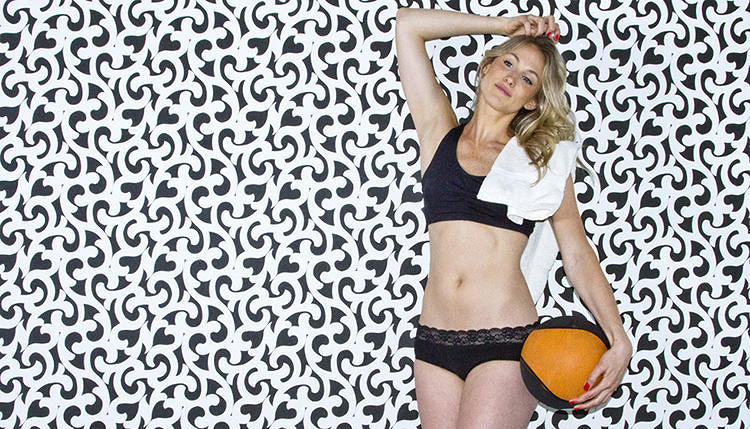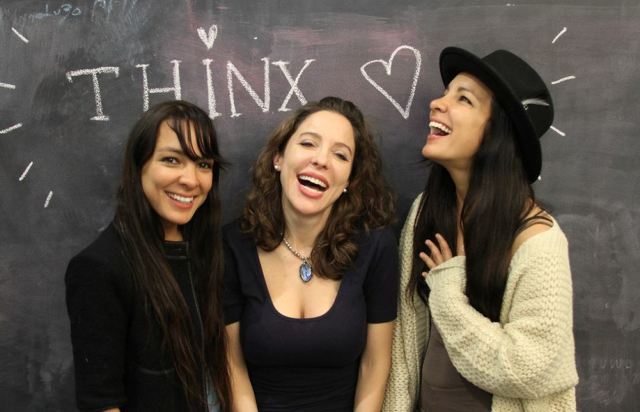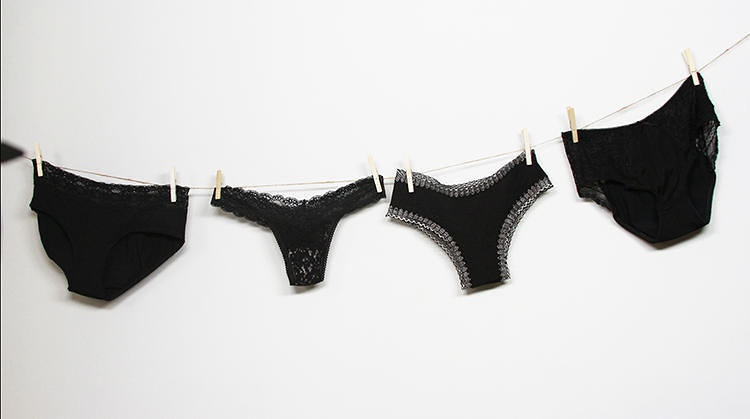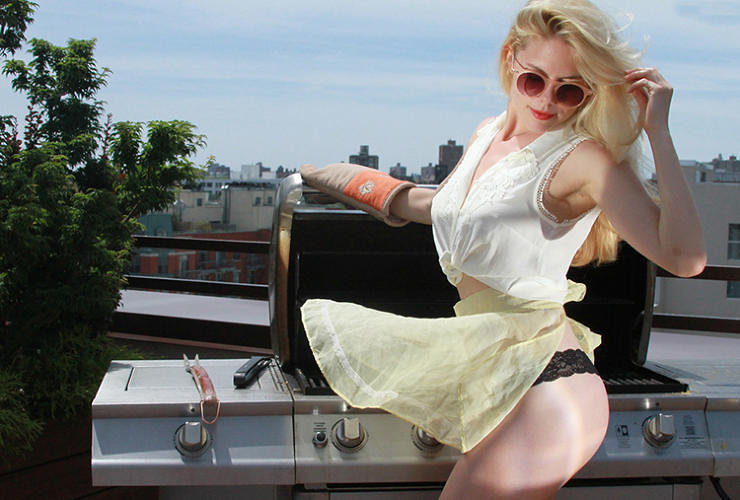'Thinx' Will Stop Your Period from Leaking
2013.12.12

During a trip to a wedding in India, twin sisters Miki and Radha Agrawal and their “triplet from another mother,” Antonia Dunbar, were sitting on the banks of the Ganges River in Rishikesh when the conversation turned to how each of the three women wanted to make an impact on the world. “We were talking about wanting to ‘do good and do well,’” explains Dunbar.

Thinx Founders: The Agrawals and Dunbar
Here's the thing: Tampons leak. As do pads. Every woman have, in their lives at some point, have faced the small but excruciating personal nightmare of getting their period and overloading whatever sanitary option they decided to use, or dealing with a surprise arrival. “I bled through my underwear every month,” Radha says. “It was annoying.”
Dunbar also had a similar experience which included an accident at age 13 where her school's football team asked is she sat in ketchup.
Miki, however found herself deeply affected during a trip to Africa: She met a young girl who was unable to attend school because she was in the middle of her "week of shame." Miki began researching the shocking statistics about women in places where they lack tampons or pads for the time of the month. Women in developing countries miss at least 20% of the school year because of their periods. Millions drop out entirely. Their options for sanitary protection tend to include sticks, leaves, dirty rags, mud, and plastic bags. “This project started very personal,” Radha explains, “and then it became global.”

Three years after that conversation in India, and following plenty of research and crowdfunding, the Agrawals and Dunbar have launched Thinx - a women's underwear company that aims to solve both the personal and global problem. It’s “smarter underwear,” as Radha puts it, featuring patented fabric technology that’s both leak and stain resistant--and it doesn’t look like granny panties.
Because of their motto "Do Good And Do Well," the Thinx team took it one step further. For every pair of Thinx that Western women purchase, the company funds seven washable pads for women in a developing country via a Uganda-based for-profit called AFRIPads. “It’s an empowerment model,” says Miki. “We’re not just giving away pads for every pair of underwear that we sell. We’re funding AFRIPads, giving them money to grow their company, hire more women locally, creating sustainable business models, creating local jobs, and then subsidizing the cost of the end product, which makes it affordable for the end user: the women.”

The only hurdle the girls had to overcome is to getting people to talk about the issue. “One thing that we’ve always focused on is elevating conversation,” replies Dunbar. “This is something that’s natural. We’re all here because of this monthly cycle. You can feel empowered by the ability to create life. It’s exciting, it’s awesome, and it’s not something to be grossed out by.” To Miki, the charitable aspect of Thinx makes it even easier to address. “It’s like a head fake,” says the former soccer star. “I’ll buy this underwear for myself, but let’s not talk about me and my period--let’s talk about the girl around the world who has an issue. My goal is to achieve gender equality globally, and so to me, this is the culmination of everything I ever wanted to do.”

More Articles
Copyright © Fooyoh.com All rights reserved.